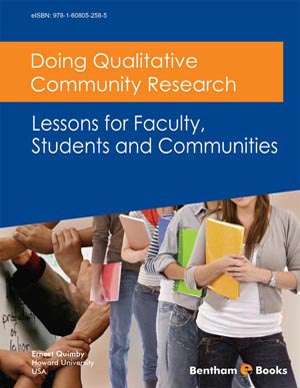Abstract
Methodological techniques and conceptual analysis guide QCR. Planning helps qualitative researchers identify and explore the meanings that participants attach to their experiences. An observation guide or ethnographic protocol is useful for standardizing collection procedures and capturing informative details. Clarifying data analysis procedures is crucial. Project staff training helps credibility and consistency of collection and analytical techniques. Triangulation, using multiple sources and methods of collecting and analyzing data, may permit collection of meaningful data. Coding and ratings are based on pre-established theoretical categories, emergent conceptual constructs or both. Manual and/or software analytical techniques are used. Results may be numerically tabulated. Quantitative coding can supplement qualitative procedures. Ensuring validity and reliability may be a concern for some qualitative researchers, but not others, particularly ethnographers striving for authenticity. Ethnography involves attempted immersion in participants’ lives to obtain their perspectives and understandings of their cultural and social realities. Despite its disadvantages, e.g., considerable time to gain trust and difficulties in generalizing, ethnography is popular. It can be integrated with quantitative methods or function as a stand-alone method. While ethnography does not emphasize traditional reliability and validity, it strives for rigor. Its methods are authentic and defensible when they follow a sound protocol. Grounded theory is frequently used to extract information and develop refined themes. Focus groups are also popular. They demand attentiveness to tasks. All qualitative research is concerned with design, study management, study site, sampling, data collection and analysis. Photography and visual literacy enhance QCR. This chapter concludes with focus group assignments.
Keywords: General Sequence, Analysis Procedures, Ethnography, Focus Groups, Managing Data, Design and Methods, Dissemination, Grant Reviews, Photography, Visual Literacy.













